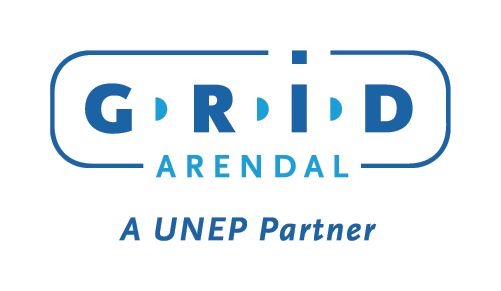Press release -
GRID-Arendal hosts the yearly General Assembly for ECOTIP
The ECOTIP initiative brings together a multidisciplinary group of scientists from more than 10 countries to study ecosystem tipping points in the Arctic marine environment. This major international effort will advance understanding of the impacts of climate change on Arctic biodiversity and the cascading effects that biodiversity change can have on marine ecosystems, the climate services they provide, and the human communities that depend on them.
From 22nd-25th May, around 30 scientists from 15 different partner institutions (including UiT, DTU Aqua, Åbo Akademi, Aarhus University, Aalborg University, University of Stirling, Helmholtz-Zentrum Hereon, University of Copenhagen, Institute of Oceanology Polish Academy of Sciences, University of Bremen, and the University of Alberta) are gathering in Arendal for the yearly General Assembly, this year hosted by GRID-Arendal, responsible for the project's communication and dissemination of results.
It's a wonderful opportunity to meet the scientists conducting research on ecological tipping cascades in Arctic seas.
The purpose of the Assembly is to get an overview of the status of project tasks, to determine what the main focus will be for the remaining year of the project, which finishes at the end of May 2024, and to plan the legacy.
Early Career Researchers presented scientific highlights of the project research on themes including Physical oceanography and paleoceanography; Phytoplankton, Zooplankton and pollution; Fish and Fisheries in Greenland and 1600 Monitoring, management and insights from our sister projects. Presentations covered:
•The suspended biomass and downward flux in August 2022 in the East Greenland shelf (70.1-76.7 °N)
• Biogeochemistry of Kongsfjorden
• Ongoing work and preliminary results based on our paleo work
• Understanding the role of wax-esters and their contribution to the lipid pump within the Arctic ecosystem
• Preliminary results on lipid composition from C. finmarchicus feeding trials.
• Arctic Zooplankton Diversity related to functional traits
• Update on the zooplankton work
• Hiding in the shadows: effects of multiple stressors on male calanoid copepods
• Mercury fluxes in the Arctic - my work in the ECOTIP project and a little bit of the problems that currently exist with the Arctic mercury budget.
• Fish community based on survey data in the southeast Greenland area.
• Diversity of Greenland’s fisheries: A brief overview, including fleets – ports – seasons – species – quantities – prices
• Biodiversity and community-based monitoring in the Arctic
• FACE-IT research highlights
• Distribution of invasive species based on eDNA.
• Detecting environmental changes in the Arctic over the past 20 years through combined in situ and satellite observations.
• Short summary of the recent outcome of the WGIEAGS (Integrated Ecosystem Assessment working group for the Greenland Sea)
Background:
The four-year project, funded by the EU's H2020 programme, launched on 1 June 2020. (See the ECOTIP launch press release.)
The Arctic Ocean and its adjacent seas are changing quickly in response to temperature increases, loss of sea ice, and the combined effects of additional ecosystem stressors such as invasive species and pollution. These types of changes can induce an abrupt and sometimes irreversible change in the ecosystem – a regime shift – that can have cascading and unpredictable effects on the ecosystem services that support human communities. The Arctic marine region is vulnerable to a series of tipping points that could bring about a regime shift of unprecedented magnitude. At stake are two critical marine ecosystem services that human societies rely on carbon sequestration, which plays a major role in the global climate system, and fisheries production, which is the economic lifeblood of many Arctic communities.
But the scientific community currently lacks sufficient information on the mechanisms, drivers, thresholds, and consequences of ecosystem tipping cascades. ECOTIP strives to fill these knowledge gaps through a unique collaboration between experts across a range of disciplines, from ecology to socio-economics to paleo-oceanography. The scientists will conduct field research via sea expeditions, and cooperate on laboratory experiments, time series analyses, and a number of modelling approaches.
The ECOTIP project will also be enriched by ongoing dialogue with policymakers, industries, and local and indigenous communities in the Arctic. The aim is to produce sound science that empowers people to make informed decisions about adaptation and management strategies, with the aim of ensuring sustainable use of ecosystem services for generations to come.
The ECOTIP project is funded by the European Union's Horizon 2020 Research and Innovation Programme under Grant Agreement No. 869383.
Related links
Topics
- Environment, Energy
Categories
- climate change
- climate research
- klima
- tipping point
Any questions?
Please contact:
press@grida.no
Head of Media Relations
Maria Dalby
+47 9064 0556
Maria.dalby@grida.no
